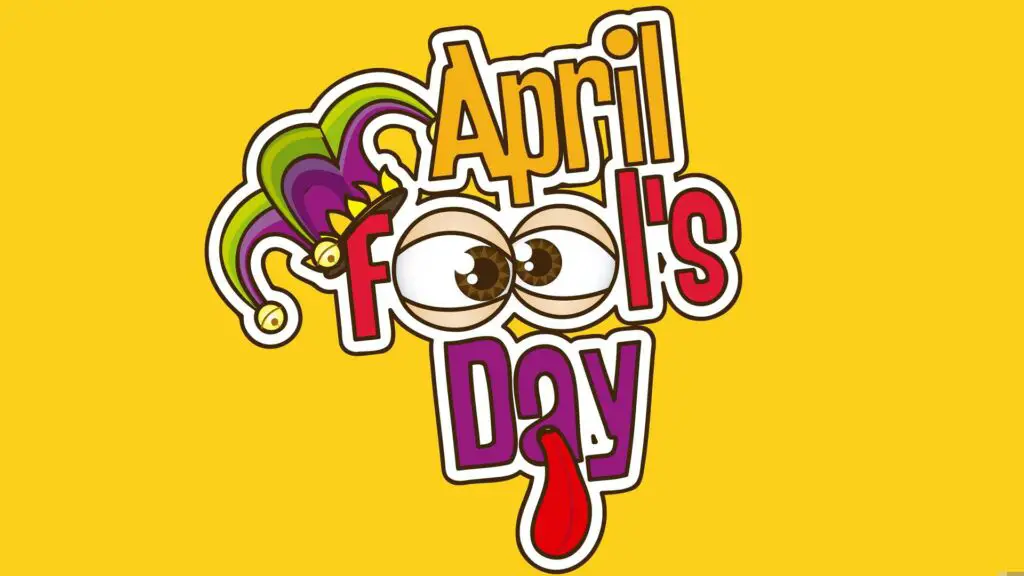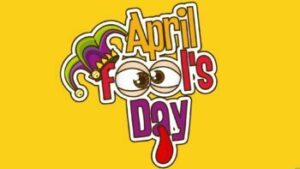
How to say April fools day in Spanish?
April Fools’ Day, also known as All Fools’ Day, is a popular holiday celebrated in many parts of the world. It’s a day where people play pranks and practical jokes on each other, often in good fun. If you’re planning on celebrating April Fools’ Day in a Spanish-speaking country or with Spanish-speaking friends, it’s important to know how to say “April Fools’ Day” in Spanish. In this article, we’ll explore how to say April Fools’ Day in Spanish and some other fun facts about the holiday.
The Spanish name for April Fools’ Day is “El Día de los Santos Inocentes,” which translates to “Day of the Innocent Saints.” The holiday is celebrated on December 28th in Spain and many Latin American countries, which is why it is sometimes referred to as “Día de los Santos Inocentes de Invierno” or “Winter Innocent Saints Day.” However, in other Spanish-speaking countries, such as Mexico and Argentina, April Fools’ Day is celebrated on April 1st, just like in the United States and many other countries.
If you want to wish someone a happy April Fools’ Day in Spanish, you can say “¡Feliz Día de los Santos Inocentes!” or “¡Feliz Día de los Inocentes!” In some countries, people may also say “¡Que la inocencia te valga!” which roughly translates to “May innocence be your protection!”
It’s important to note that the holiday is not just about playing pranks and practical jokes. In many Spanish-speaking countries, there are also traditions and customs associated with the holiday. For example, in Spain, it’s common to play pranks on friends and family members by asking them to run errands or do chores that don’t exist. In Mexico, it’s traditional to create “monigotes,” which are papier-mâché figures of people or characters that are burned at the end of the day to symbolize the end of the old year and the beginning of the new.
In Argentina, people often play jokes on each other by sticking paper cutouts of fish onto each other’s backs, a tradition that dates back to the 19th century. In Colombia, it’s common to play pranks on the first of April, but it’s also a day to remember and honor the innocent victims of the armed conflict in the country.
In conclusion, if you’re planning on celebrating April Fools’ Day with Spanish-speaking friends or in a Spanish-speaking country, it’s important to know how to say “El Día de los Santos Inocentes” or “April Fools’ Day” in Spanish. But remember, the holiday is not just about playing pranks and practical jokes, it’s also about celebrating traditions and customs in different cultures. So go ahead and have fun, but also respect the local customs and traditions!
Examples:
Hoy es el día de los inocentes. – Today is April Fools Day.
Le hoy hacer una maldad a mi hermana porque hoy es el día de los inocentes. – Today I do a bad thing to my sister because today is the day of the innocents.
¿Le echaste sal al café?, porque hoy es el día de los inocentes. – Did you add salt to the coffee? Because today is April Fools’ Day.
Me desperté para hacer maldades porque hoy es el dia de los inocentes. – I woke up to do evil because today is April Fools’ day.
Vamos a cogerlos a ellos por el día de los inocentes. – We’re going to catch them for April Fools’ Day.
Mi abuela siempre me recordaba el día de los inocentes. – My grandmother always reminded me of April Fools’ Day.
Me gusta hacerle maldades a mi mamá en el día de los inocentes. – I like to do bad things to my mother on April Fool’s Day.
¿Hoy es el día de los inocentes?. – Today is April Fools Day?.
Preparemos una maldad para el día de los inocentes. – Let’s prepare an evil for April Fool’s Day.
Mi vecina me engañó en el dia de los inocentes. – My neighbor cheated on me on April Fools Day.
Carlos, échale sal al refresco porque hoy es el día de los inocentes. – Carlos, add salt to the soda because today is April Fools’ Day.
El día de los inocentes es el mes que viene. – April Fools Day is next month.
Te voy a coger el día de los inocentes. – I’m going to catch you on April Fools Day.
Es muy temprano para ir hacer maldades por el día de los inocentes. – It is too early to go do evil for April Fools Day.
El día de los inocentes yo me divierto mucho. – On April Fools’ day I have a lot of fun.
Mira, lo cogieron para una broma por el día de los inocentes. – Look, they caught him for an April Fool’s Day prank.
A mi papá le encanta el día de los inocentes. – My dad loves April Fools Day.
Es muy divertido el día de los inocentes. – It’s so much fun on April Fool’s Day.
Yo siempre le hago una broma a mi abuelo en el día de los inocentes. – I always play a joke on my grandfather on April Fool’s Day.
Aprovecha con las bromas que hoy es el día de los inocentes. – Take advantage of the jokes that today is April Fools’ day.
En el día de los inocentes las personas hacen muchas bromas. – In the day of the innocents people make a lot of jokes.
Hoy vamos a bromear con todos por el día de los inocentes. – Today we are going to joke with everyone for April Fools Day.
En mi pueblo no se celebra el día de los inocentes. – In my town, the day of the innocents is not celebrated.
Para mí, el dia más gracioso, es el día de los inocentes. – For me, the funniest day is April Fools’ Day.
Me encanta ir a la escuela el día de los inocentes. – I love going to school on April Fools Day.
Mis amigos saben que me encanta hacer maldades en el día de los inocentes. – My friends know that I love doing evil things on April Fool’s Day.
Voy a resolver eso el día de los inocentes. – I’m going to solve that on April Fools Day.
¿Hoy no trabajas?, porqué es el día de los inocentes. – Are you not working today? Because it is April Fools’ Day.
Prepara hoy la broma por el día de los inocentes. – Prepare today the joke for April Fools.
Yo voy a embromar a mi esposo por el día de los inocentes. – I’m going to tease my husband for April Fools’ Day.
